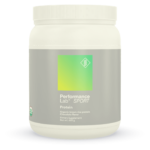We all want to build muscle. But we also want to do it rather quickly. There are ways but many of them involve steroids or supplements that aren’t well researched or regulated.
Luckily, one supplement does have some research to support that it works. Leucine has become a popular choice for gym-goers and athletes.
But what type of side effects does it have? Is it safe? Leucine benefits may not just improve muscle growth.
What is Leucine?
Leucine is a branch-chained amino acid (BCAA). It’s often sold as a separate supplement, but you can get supplements that sell all three BCAAs.
The other two BCAAs valine and isoleucine aren’t as popular as leucine. However, not much is known about them and they haven’t been studied to the same degree that leucine has.
Essential amino acids like leucine aren’t produced by the body. You have to either consume it through food or take supplements.
Essential amino acids increase your energy and protein production. This allows you to build muscles!
Amino acids are found in foods that are high in protein. Meats like fish, chicken, and turkey contain high amounts of amino acids.
Other foods like dairy and soybeans are a good source of amino acids. Foods like eggs, nuts, and fruit do contain leucine and other amino acids but the levels are much lower.
Leucine has two classifications: L-leucine and D-leucine. L-leucine refers to the natural form of the amino acid.
L-leucine is found in proteins and is used as the main form of a supplement. D-leucine is the mirrored version of L-leucine. It’s created in a lab setting and used as a supplement.

Health Benefits of Leucine
Before we begin the discussion on leucine benefits, it’s important to note that the FDA hasn’t approved these claims.
Major regulation standards lack, just manufacturing ones exist, and there is no guarantee of their safety or effectiveness.
If you do wish to purchase BCAAs, make sure you’re purchasing them from a legitimate company that offers third-party lab tests for toxins or heavy metals.
Before you take any supplements, consult a doctor.
If you have a medical condition or are taking medications, seek professional advice from your healthcare provider before consumption.
We mentioned that leucine does have some supporting evidence that it works. However, most of the research is limited.
Many of the studies include all three branch-chained amino acids instead of focusing on a single amino acid.
But we can discuss what we do know in terms of research, what we know doesn’t have much promise, and what may or may not work.
Supporting Evidence of Leucine Benefits
Some research has found that leucine benefits brain function in liver disease. Studies have found that symptoms improved when taking oral BCAAs.
It also helped with poor brain function for those that had it due to liver disease. Another study found that cognitive function improves in those that have liver disease.
However, the likelihood that one dies from the disease didn’t reduce.
Evidence supports that leucine reduces fatigue and exertion after intense exercise sessions. This helps improve your post-workout recovery. When you exercise, your body breaks down BCAAs in the muscles.
The theory of taking BCAAs comes from the belief that since it helps stimulate protein synthesis and degradation, it helps with fatigue and soreness.
One study on 30 healthy adults found that those who took the BCAA supplement has less soreness in the following days than those who didn’t take any.
Those that didn’t supplement had prolonged soreness. The study also showed less muscle fatigue when BCAA supplementation was taken.
Scientists have found that leucine specifically increased muscle-building pathways in rats and a decrease in muscle protein breakdown.
Those that suffer from tardive dyskinesia may benefit from leucine and BCAA supplementation.
Several clinical trials have found the symptoms of tardive dyskinesia reduced after taking oral BCAAs.
Animal studies have found promising results with BCAAs, mainly leucine.
Studies on rats found that supplementation of branched-chained amino acids increased the protein synthesis process. The more BCAAs that were given, the greater the effects were.
In studies of BCAAs, leucine showed the most enhancement of protein synthesis.
Heart problems like heart attacks and heart disease are a concern for many that are overweight. High cholesterol contributes to the risk of heart attack and obesity.
High levels of LDL (bad cholesterol) have been correlated to atherosclerosis (hardening of the arteries).
HDL (good cholesterol) reduces the risk of hardened arteries. In a study conducted with rats, leucine supplements reduced LDL by 41% and increased HDL by 40%.
Leucine also decreased atherosclerotic lesions by 58%.
A study on weight gain and obesity in rats found that a leucine-rich diet decreased obesity by 25% and lessened weight gain by 32%.
It also showed a decrease in cholesterol levels by 27% and 53% for LDL levels.
Unlikely Effectiveness
The research on liver cancer isn’t the most promising. BCAAs haven’t been found to improve outcomes.
However, some evidence supports that BCAAS may improve survival and recurrence of liver cancer in those that didn’t have surgery.
Despite this study, we can’t say with certainty because of the sample size and design flaws.
Many athletes and gym-goers take not only leucine but BCAAs. However, evidence on the effectiveness of BCAAs is contradictory at best.
In most of the studies conducted on oral BCAAs and exercise performance, BCAAs didn’t enhance performance.
Another study on BCAAs (mostly L-leucine), didn’t find any effect on runners.
A study on liver cirrhosis and BCCAs found that supplementation increased the quality of life in patients. They had improved sleep and less fatigue.
However, other studies contradicted this finding and discovered more negative effects.
Insufficient Evidence
Other conditions have been studied to determine the effect of BCAAs. Unfortunately, there’s insufficient evidence on whether they work or not.
One study on muscle-wasting found that leucine supplementation didn’t have an effect on ill patients.
However, another study on BCAA supplementation and patients with burns and sepsis had decreased muscle-wasting.
In one study, young adults were given leucine supplements in various ranges and it increased their protein synthesis.
Elderly participants only had an increase of protein synthesis when they were given high concentrations.
A study on strength tested whether leucine supplements increased strength. 26 men were tested, and it was found that those who took L-leucine were able to lift heavier. Increased muscle mass wasn’t reported.
The major flaw in the study is that further trials haven’t been able to replicate the results.
Leucine may have the potential to increase your energy levels. In rats, leucine acts as a precursor to fats that get broken down to produce energy.
Researchers think that increased leucine levels can convert it into ketones. The body can then use them as an energy source.
However, there are limitations to that theory. Some people have deficiencies in the molecules that break leucine down into its two molecules it uses to obtain energy: acetyl-CoA and acetoacetate.
These people can develop acidosis (low blood pH levels) or hypoglycemia.
Leucine spikes insulin levels, which increases glucose uptakes. It also can block glucose uptake.
This can cause fatigue or a loss of energy. For some people that fast, they see an increase in energy for 45 minutes, then a sharp decrease afterward.
Many bodybuilders and lifters are aware of this effect and have methods to avoid this process. Many find that consuming a meal before working out helps decrease tiredness and fatigue.
Overall, the studies for BCAAs show promising results. Unfortunately, not many studies have been conducted on each of the specific branch-chained amino acids.
This makes it difficult to say with certainty that leucine itself carries a heap of benefits.
However, the studies that have been conducted did show some support that it works.
More research is needed on leucine benefits specifically. While the rat studies show seemingly good results, there haven’t been many conducted on humans.
Side Effects of Leucine
Leucine and BCAAs have a few side effects. For those who are healthy, the side effects are mild. They are mostly safe if only used for up to two years.
Some common side effects include fatigue, nausea, vomiting, diarrhea, bloating, headache, high blood pressure, skin whitening, and loss of coordination.
If you are pregnant or breastfeeding, it’s not recommended because little is known about the effects. BCAAs have been linked to lung failure and higher death rates in ALS sufferers.
Liver disease and brain damage have been found among alcoholics that consume BCAAs. Leucine specifically lowers blood sugar.
It’s not recommended for diabetics to take without the supervision of a doctor.
If you take certain medications, speak with a doctor or pharmacist for any drug interactions.
Dosage
The proper dosage will vary from person to person. Some people with health conditions that are using BCAAs as part of their treatment plan should follow guidelines from their doctor for the proper dosage.
Two conditions have been studied and an effective dosage was found. For those that have tardive dyskinesia, a BCAA dosage of 222mg taken three times per day for three weeks showed a reduction of symptoms.
For those with advanced liver disease, 240mg per day for up to three months has been found to help with reduced brain function.
Healthy people that take it for the sole reason of muscle building will have to experiment. Most people take around 50mg a day.
If you experiment with your dose, you want to ensure you don’t suffer an overdose. An overdose occurs over 500mg per day. Overdose can lead to brain damage and liver disease.
How Leucine Benefits Muscle Growth
We have discussed that leucine activates protein synthesis that stimulates muscle growth. In one study, participants drank a supplement that had 5.6 grams of BCAAs after their workout.
They had a 22% increase in muscle protein synthesis than those who drank the placebo.
Now, that seems like a huge increase. However, this increase isn’t the highest compared to other studies where whey protein was consumed.
Whey protein shakes that contained the same amount of BCAAs, showed 50% greater protein synthesis than the previous study’s results.
Why? Whey protein has a combination of the BCAAs and all the other essential amino acids that help aid in muscle growth.
While leucine itself can activate the muscle-building process, you might want to consume all three BCAAs and essential amino acids.
Why?
Your protein synthesis works better when all the amino acids are working together. You’ll see better results and at a faster rate. You’ll reap more health benefits in the process too.
Recommended Leucine Supplements
| Evlution Nutrition L-Leucine2000 | Performance Lab® SPORT Protein | Nutricost Pure L-Leucine |
 |
 |
 |
| Evlution Nutrition L-Leucine2000 has 2 grams of Leucine per serving, which equals the amount found in 4 eggs. | Performance Lab® SPORT Protein is a premium, clean, vegan shake that contains a proprietary ingredient, Oryzatein®, with leucine that absorbs 30% faster. | Nutricost Pure L-Leucine is for serious body builders and athletes looking for the most bang for their buck, with 5 grams of leucine per serving. |
 |
 |
 |
Final Thoughts
Slow muscle growth and soreness don’t have to occur. You can look into consuming BCAAs to help stimulate your growth and decrease post-workout pain.
You’ll often see gym-goers and athletes avoid taking all three and go for leucine because of the protein synthesis activation.
There has been some evidence to support that it works. Leucine benefits more than muscle growth for some.
It can even help treat certain health issues like brain function in liver disease patients and muscle-wasting conditions.
Whatever your reason for experimenting with leucine, you are more than likely to see some benefits.



